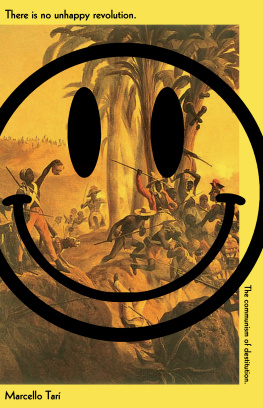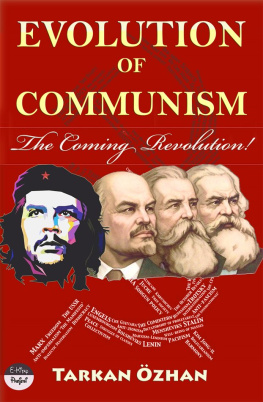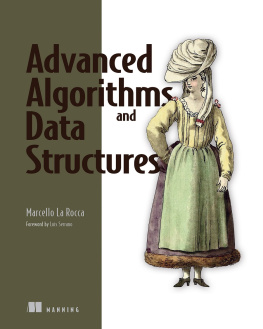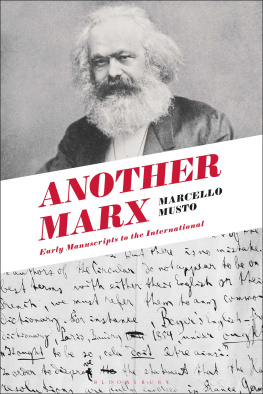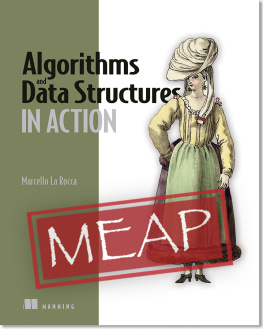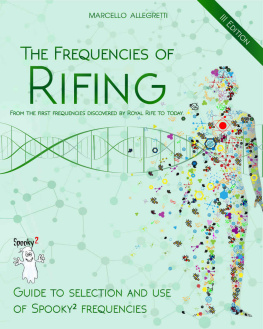Marcello Tarì - There is No Unhappy Revolution: The Communism of Destitution
Here you can read online Marcello Tarì - There is No Unhappy Revolution: The Communism of Destitution full text of the book (entire story) in english for free. Download pdf and epub, get meaning, cover and reviews about this ebook. year: 2021, publisher: Common Notions, genre: Politics. Description of the work, (preface) as well as reviews are available. Best literature library LitArk.com created for fans of good reading and offers a wide selection of genres:
Romance novel
Science fiction
Adventure
Detective
Science
History
Home and family
Prose
Art
Politics
Computer
Non-fiction
Religion
Business
Children
Humor
Choose a favorite category and find really read worthwhile books. Enjoy immersion in the world of imagination, feel the emotions of the characters or learn something new for yourself, make an fascinating discovery.
- Book:There is No Unhappy Revolution: The Communism of Destitution
- Author:
- Publisher:Common Notions
- Genre:
- Year:2021
- Rating:3 / 5
- Favourites:Add to favourites
- Your mark:
- 60
- 1
- 2
- 3
- 4
- 5
There is No Unhappy Revolution: The Communism of Destitution: summary, description and annotation
We offer to read an annotation, description, summary or preface (depends on what the author of the book "There is No Unhappy Revolution: The Communism of Destitution" wrote himself). If you haven't found the necessary information about the book — write in the comments, we will try to find it.
Marcello Tarì: author's other books
Who wrote There is No Unhappy Revolution: The Communism of Destitution? Find out the surname, the name of the author of the book and a list of all author's works by series.
There is No Unhappy Revolution: The Communism of Destitution — read online for free the complete book (whole text) full work
Below is the text of the book, divided by pages. System saving the place of the last page read, allows you to conveniently read the book "There is No Unhappy Revolution: The Communism of Destitution" online for free, without having to search again every time where you left off. Put a bookmark, and you can go to the page where you finished reading at any time.
Font size:
Interval:
Bookmark:

The communism of destitution.
There is no unhappy revolution.
Marcello Tar
The communism of destitution.
Marcello Tar
translated by Richard Braude

There Is No Unhappy Revolution: The Communism of Destitution
Marcello Tar
Copyright Marcello Tar, 2021
English translation Richard Braude, 2021
This edition 2021 Common Notions
First published in the Italian by DeriveApprodi as Non esiste la rivoluzione infelice: Il comunismo della destituzione (2017).
This work is licensed under the Creative Commons Attribution-NonCommercial-ShareAlike 3.0 Unported License. To view a copy of this license, visit creative-commons.org/licenses/by-nc-sa/3.0/
ISBN: 978-1-942173-16-8 (print)
ISBN: 978-1-942173-42-7 (ebook)
LCCN: 2020941355
10 9 8 7 6 5 4 3 2 1
Common Notions | Common Notions |
c/o Interference Archive | c/o Making Worlds Bookstore |
314 7th St. | 210 S. 45th St. |
Brooklyn, NY 11215 | Philadelphia, PA 19104 |
www.commonnotions.org
Copyedited by Erika Biddle
Cover design by Josh MacPhee / Antumbra Design
Layout design and typesetting by Morgan Buck / Antumbra Design
Antumbra Design www.antumbradesign.org
Printed by union labor in Canada on acid-free, recycled paper.
04. Destituent Strike I:
Justice vs. Law
05. Destituent Strike II:
No Future for Us
06. Destituent Strike III:
Revolt Against the Metropolis
07. Destituent Strike IV:
The Nomos of the Commune
09. Interruption I:
There Is No Unhappy Love
10. Interruption II:
To Save Tradition, We Must Interrupt It
11. Interruption III:
Destitute Everything, Including the Revolution
12. Interruption IV:
The Heroic Cessation: An Epic for the Revolution
A central problem of translation in Marcello Tars text is that of the terms destituent and destitution, a concept that lies at the heart of its argument. If unfamiliar to the Anglophone reader, it should be borne in mind that (linguistically speaking at least) it is simply the opposite of constituent and constitution. The American Constitution has a constituent assembly; an act of destitution might have a corresponding destituent element. One builds, the other deconstructs; one constitutes, the other destitutes. A further distinction made is that between the words potere and potenza, which are rendered here as power and potential. The division is important for Tar because it identifies a qualitative difference between the form of power within a constituent process (potere) and that within a destituent one (potenza). On these points, also see Adam Kotskos note to his translation of Giorgio Agambens The Use of Bodies.
The notes have been used primarily to complete bibliographical information and help the reader navigate the authors textual coordinates. Wherever possible, quotations from previous English translations have been drawn upon and cited; otherwise, references have been made to texts in their original languages.
This translation was carried out over a few months of a year in which many of the concepts it contains became self-evident, a moment of rupture in which government melted away and new (and sometimes beautiful) forms of life appeared by both necessity and volition, and in which a new wave of Black-led uprisings burst out from within the heart of empire. My thanks to the author for deftly describing some paradigms of this surreal journey.
Richard Braude
Palermo, September 2020
When will someone finally come and straighten out this topsy-turvy world?
Franz Kafka, Letter to Milena Jesensk Pollak
How does an epoch become an era, and how does an era become an eon? Or: how does a revolt turn into an insurrection, and how does an insurrection turn into a revolution?
For centuries, each generation has found itself up against this unresolved yet unavoidable question. One might say revolutions arrive in the world at precisely the moment people begin to ask themselves this very question and, in dialogue with others, begin to develop some responses. This struggle, both worldly and spiritual, has given rise to extraordinarily audacious and adventurous experiments thatmore often than notend in defeat. It often happens that the struggle comes to an end because those who posed the question melt away. The cunning of history has always had the better of the scandal of truth. This is why Franz Kafka said that for revolutionary spiritual movementswhich have always been movements running against the current of historyit is as if nothing has ever happened. Despite this, or perhaps because of it, the question arises again and again from the ruins of timeintact.
Having arrived at the end of a civilization (our own civilization, of coursewho elses would it be?), this line of questioning has acquired a new urgency. It can no longer be postponed, it feels even more rooted in current circumstances, and has become the silent reflection of an increasingly widespread disquiet. These are simple questions that have been repeated many times over in places very far away from each other. How to put an end to a form of rule that does not want to end? How to put an end to the poverty of an existence whose meaning escapes us every which way we turn? How to put an end to this present moment, in which the architectural plan seems to map out a prison cell so vast as to contain entire populations? How to put an end to a catastrophe that can no longer extend any further because it is already everywhere and has even begun to dig down beneath the feet of the angel of history? Last but not least: how do we shift the axis of the world to align it along the abscissa of happiness? The answer cannot be separated from the question, and for this reason, it must remain at a standstill but also utilizable by anyone who feels it arising within them. The true doctrine consists only of questions, as the historians of the Kabbalah know all too well. The answer is inscribed within existence itself, at the moment in which all of existence collides with the question.
In our own times, however, it seems as if our tired old world itself is interrogating us, before it gives up and takes its leave from the stage. It is tired because all possibilities have been exhausted. From now on, it is only the impossible that counts. When history approaches its end, it becomes far too heavy to bear. Indeed, for some time now, historys progression has meant only the intensification of its catastrophe. Buried under the mountains of the rubble of progress, the truth is that there has never been a single world (i.e., that of our present moment, closed within the quaternity of West-Modernity-Democracy-Capitalism) but an Earth that has never stopped mutating into a multiplicity of worlds seemingly unified through their divisions and hierarchies according to cybernetics, capital, metaphysics, and spectacle.
Until recently, there was the possibility (even if a subaltern one) of naming this plurality of worlds. But the current world, which presents itself as the one and only unity of meaning, canceled out even the modern definitions of the second, third, and fourth worlds from the ruling discourseexactly as it did for class. There is only one world, the world of capital, and only one class: the planetary bourgeoisie. And yet it is precisely that
Font size:
Interval:
Bookmark:
Similar books «There is No Unhappy Revolution: The Communism of Destitution»
Look at similar books to There is No Unhappy Revolution: The Communism of Destitution. We have selected literature similar in name and meaning in the hope of providing readers with more options to find new, interesting, not yet read works.
Discussion, reviews of the book There is No Unhappy Revolution: The Communism of Destitution and just readers' own opinions. Leave your comments, write what you think about the work, its meaning or the main characters. Specify what exactly you liked and what you didn't like, and why you think so.

